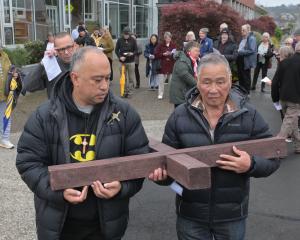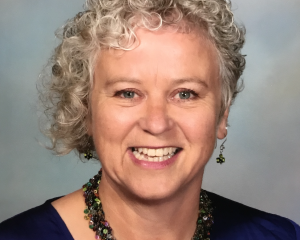A 'laissez-faire approach' towards poker machines by southern local bodies has come at a cost to communities, according to the Problem Gambling Foundation.
The Dunedin City Council has been singled out as having one of the worst gambling policies in the country, with other southern councils lagging behind their northern counterparts, foundation spokesman David Coom said.
"The Dunedin City Council has one of the worst policies . . . it allows a laissez-faire approach to gambling in the community."
Under the Gambling Act 2003, territorial local authorities are able to review gambling policy at least every three years.
Mr Coom said while it was pleasing the DCC might review its gambling policy a year earlier than it was legally obliged to, it should have implemented tougher restrictions on pokie venues sooner.
"It takes years to reduce the number of machines at venues," he said.
With several authorities set to review their gambling policies in 2009, councils are urged to follow the example set by 12, mainly North Island, authorities and introduce "sinking lid policies", he said. This would result in no more licences being issued for non-casino gambling venues, and venues that close would lose their licences.
DCC liquor licensing and projects officer Kevin Mechen rejected claims its gambling policy was hands-off, saying the statistics revealed the number of venues and machines had steadily declined.
"I know that the Problem Gambling Foundation don't like us because of [the policy]," he said.
In 2006, the council's planning and environment committee recommended a sinking lid clause be adopted but the council chose to retain the status quo in April 2007.
While the numbers of gambling machines in Dunedin declined from 680 in 58 venues in 2007, to 632 in 52 venues by September, they had increased by 13 over the last quarter.
Mr Mechen said he would review the policy in the new year and present his findings to the council.
However, Mr Coom urged councils to introduce the sinking lid to favour communities over gambling trusts.
"The gambling trusts want territorial local authorities to have a really hands-off approach - they want the market to decide. The more pokies the more opportunities."
Pub Charity chief executive Martin Cheer, of Wellington, said the Gambling Act had limited the growth of machines nationally and the DCC was to be commended for not rushing to adopt a sinking lid policy.
"There is no point adding a layer of bureaucracy just to satisfy the left-wing fringes."
The council had adopted the most liberal policy available and it was up to the market, not a council, to determine the number of machines in the community, he said.
Policies throughout the South
• Dunedin has an open policy allowing new venues with a maximum of nine machines (the maximum allowable under the law for new venues). There are 632 machines at 52 venues. It last reviewed its gambling policy in 2007.
• Clutha has a capped policy of one venue/1000 population and one machine/150 population. Last reviewed the Act in 2007.
• Queenstown-Lakes District has an open policy allowing new venues with a maximum of nine machines. Last reviewed the Act in 2007.
• Waitaki has a capped policy of one venue/1000 people and a machine cap of 140 - at present there are 123 machines. Last reviewed the Act in 2007.
• Central Otago has an open policy allowing new venues with a maximum of nine machines. Last reviewed the Act in 2007.
• Invercargill has a cap of 338 machines. It has 328 machines at 23 venues. Last reviewed the Act in 2007.
• Gore District Council has an open policy allowing new venues with a maximum of nine machines. It has 148 machines at 26 venues. Last reviewed the Act in 2006.
• Southland has an open policy allowing new venues with a maximum of nine machines. It has 148 machines at 26 venues. Last reviewed the Act in 2007.
• Territorial local authorities which have adopted sinking lid policies are: Christchurch (2006), Wanganui (2008), Wairoa (2007), Palmerston North (2008), Napier (2006), Rotorua (2007), Thames-Coromandel (2008), Gisborne (2008), Auckland (2007), Manukau (2007), Whangarei (2007) and Kaipara (2008).












